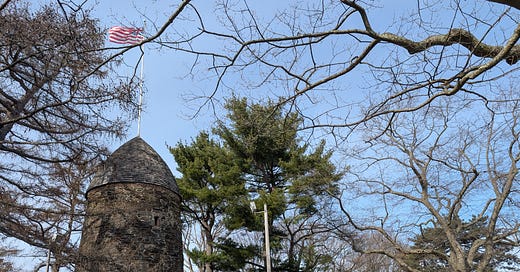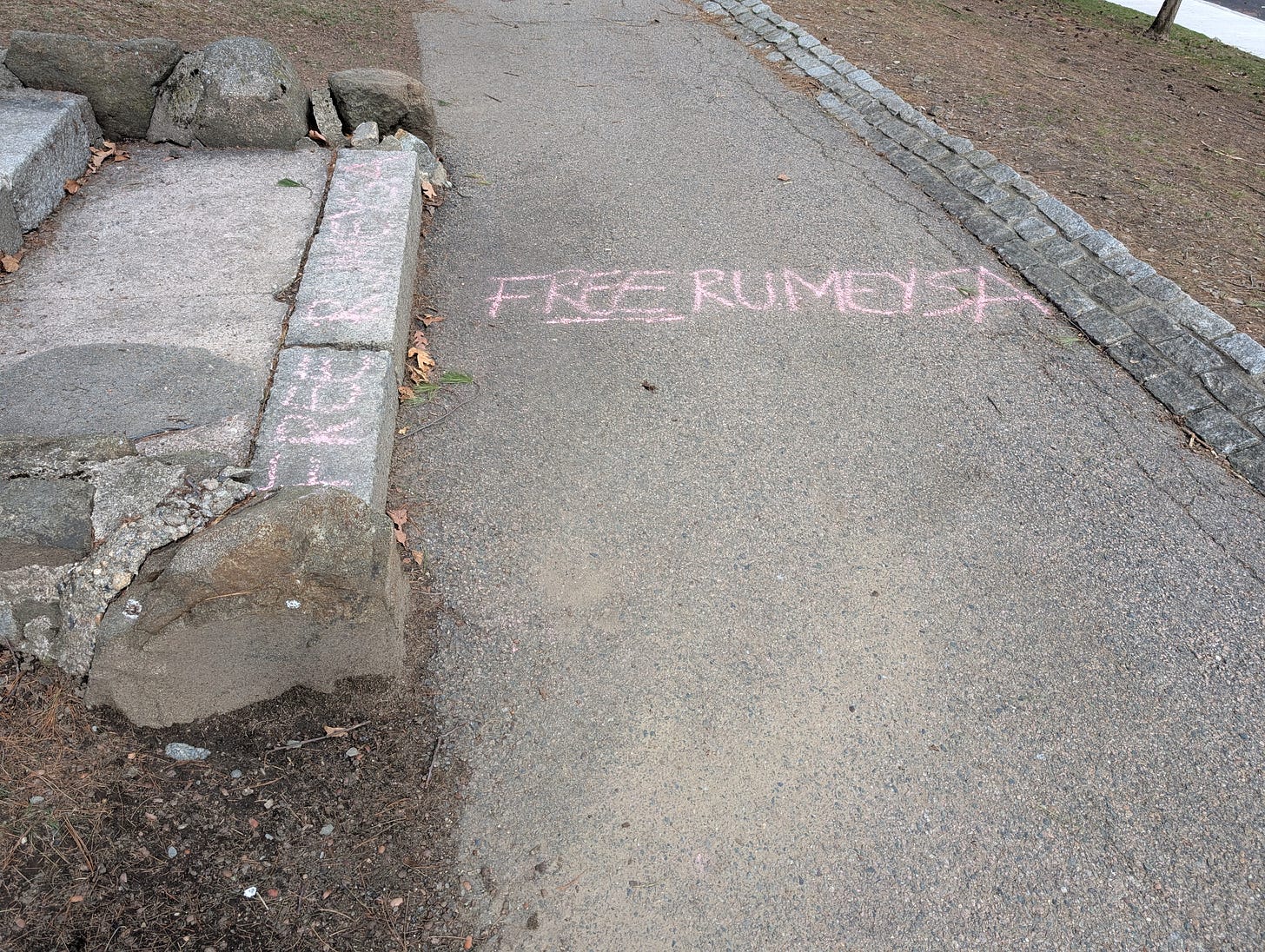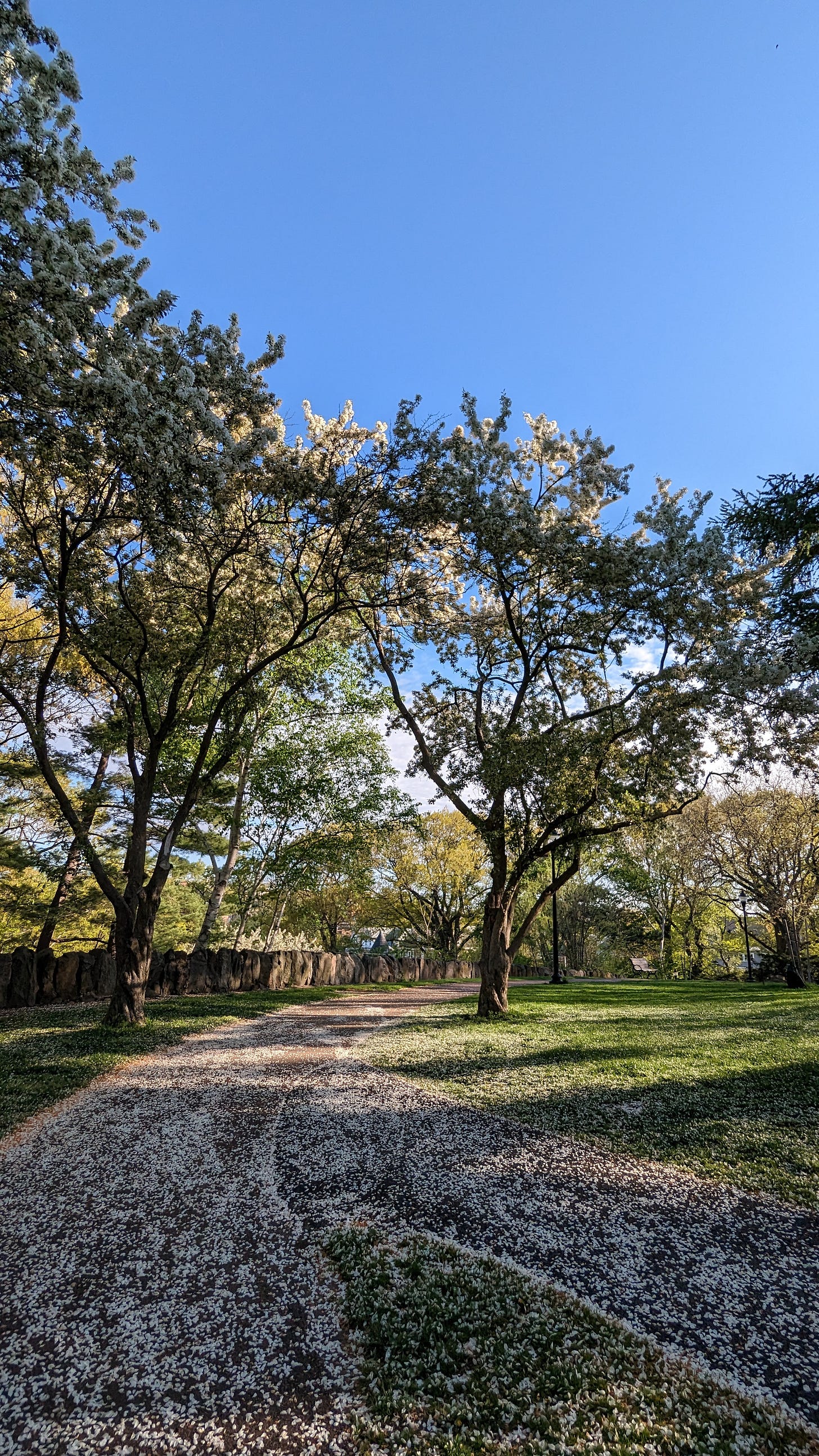My family lives close to Powder House Park, a small green space north of Boston. It sits by a busy rotary separating the cities of Somerville and the Tufts University side of Medford. Officially named Nathan Tufts Park (though no local calls it that), it is home to the Old Powder House, a 30-foot-tall tower with a Grand Union flag flying from its top.
Last Wednesday, thousands met in this park to protest against the ICE abduction of Tufts PhD student Rumeysa Ozturk. She was taken into custody blocks away from the park on the previous day, preparing to break her Ramadan fast.
The last time I was in a crowd in this park was back in September, when the city celebrated the 250th anniversary of the Powder Alarm. My family listened as a volunteer described the night in 1774 when British soldiers rowed up the Mystic River and emptied the gunpowder from the tower, one of the largest stores in Massachusetts. Rumors spread that Americans were harmed during this raid, causing thousands of militiamen to move towards Boston and Cambridge, putting the British on high alert. No blood was shed, but it is now considered a “dress rehearsal” for the Battles of Lexington and Concord that would occur months later.
We ate cornbread and posed for photos with men in red coats with muskets. I peeked inside the Powder House for the first time. It was smaller than I imagined, with crumbling walls and light shining from an opening right by where the flag pole stands year-round.
As I watch the video of Rumeysa’s capture, my breath catches in my throat. I have colleagues who worked with her and friends who live on the street where she was taken. I think about all the students I’ve encountered from my work as a researcher and college professor like her who feared deportation, or academic retaliation for standing up for what they believed in. I think about the way our academic institutions treat international students as expensive burdens while priding themselves in attracting them in the first place. I think about her experience as a Fulbright scholar, a highly competitive US-funded program dedicated to fostering intellectual and cultural exchange (the front page of the Fulbright program’s website reads in bold letters: “Connecting people. Connecting nations.”)
In the video I see a human being preparing for a night of connection and spiritual nourishment being diminished, disappeared, for simply expressing an opinion in a student newspaper and having the gall to sign her name to it.
I don’t believe that a few people gathered with hand-made signs will lead to an event as significant as the shot heard ‘round the world.
And yet.
Standing shoulder to shoulder with my neighbors beneath the Powder House last week, I was amazed that we had chosen this spot. In less than 24 hours we gathered, scrawling messages on old cardboard, texting friends, sharing fliers. I saw people wearing yarmulkes and union t-shirts, carrying American flags and pushing walkers. A parent helped a child climb some steps. A woman was handing out free masks.
I think about countless walks with my dog in this park, neighbors commenting that he barks more with me than with my husband and the time I sprained my ankle behind the field house. In the winter I love watching families bundled in snowsuits, dragging multicolored plastic sleds to the hill that precariously ends near the intersection of Liberty Ave and Broadway. In the summer and fall the park is filled with Tufts students in hammocks, families picnicking, and bandmates practicing for HONK!, Somerville’s annual activist street band festival.
The speakers at the protest demanded Rumeysa’s immediate release. They talked about Palestine. They talked about the hundreds of others who have been taken by ICE in the past few weeks as part of the current administration's reprisal against Boston’s vocal defense of immigration rights. They urged us to consider that the only people who will truly care for and save us are the people standing amongst us right now.
When I got home, I talked with my preschooler about why I was protesting. I said a woman was in trouble and a lot of people are mad that she was treated unfairly. I thought about Rumeysa’s studies, focused on how media can shape the minds of children like mine. At first he was upset that people were mad, and then became adamant that he wanted to help. “Maybe we can get her a cup of water tomorrow?” he asked, and my eyes filled with tears.
I think about those early American Patriots, the sense of violation they must have felt centuries ago. I think about the gossip and miscommunication and how they acted imperfectly, as we all do, in times of crisis. I doubt they were motivated by the conviction that they would be part of “the spark of the revolution,” as it came to be known.
In that moment, they simply did what they thought was right.
The American Civil Liberties Union (ACLU) of Massachusetts is part of Rumeysa’s legal team. You can donate to them here.







